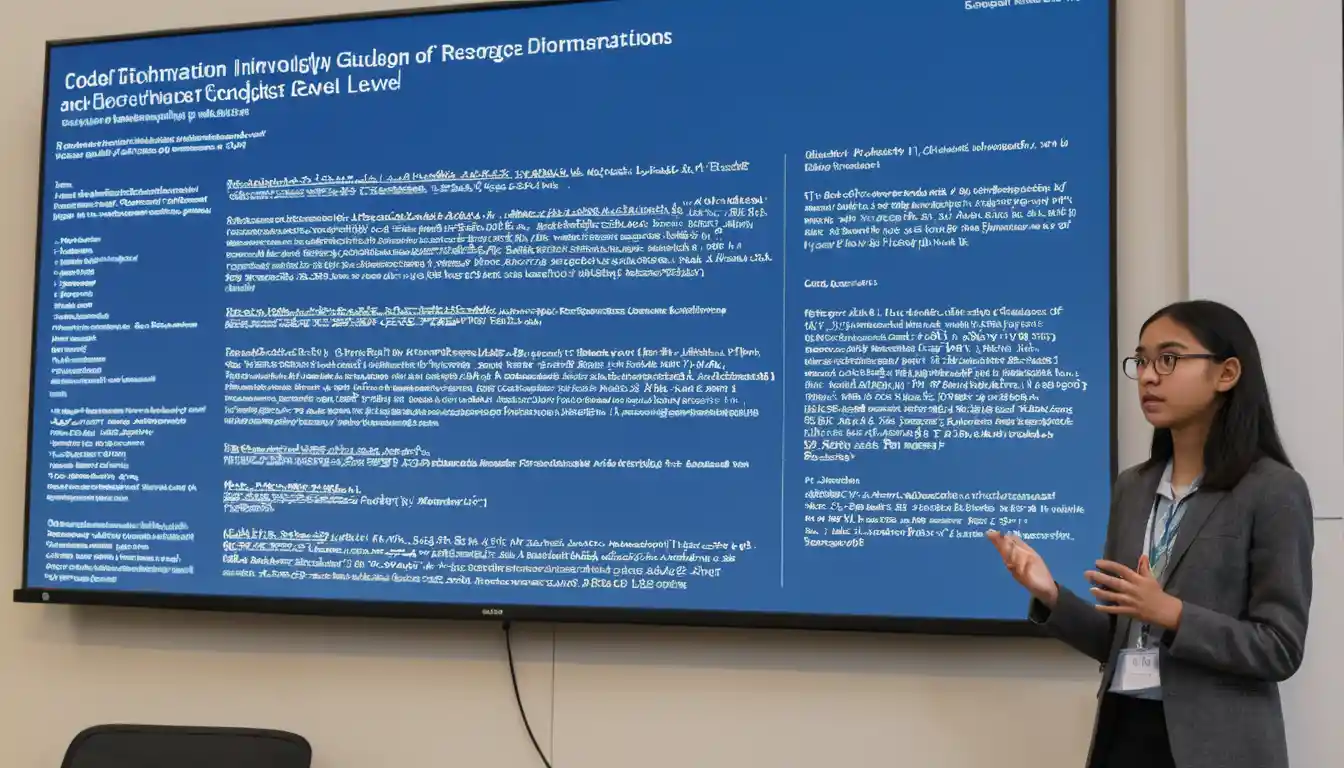PhD Information Technology Programs in USA, Canada

In today’s fast-paced digital world, technology is constantly evolving, shaping industries, and creating new opportunities. One of the most rewarding and intellectually stimulating paths you can take in the world of tech is pursuing a PhD in Information Technology (IT). If you’re passionate about technology and want to contribute to cutting-edge advancements, a PhD in Information Technology might just be the next step in your academic and professional journey. In this blog post, we’ll explore everything you need to know about pursuing a PhD in Information Technology in India.
Why Pursue a PhD in Information Technology?
In-depth Knowledge and Expertise
A PhD in Information Technology provides an in-depth understanding of the various fields within IT. From artificial intelligence and machine learning to data analytics and cloud computing, a PhD will enable you to specialize in an area that sparks your interest. This expertise sets you apart from your peers and makes you highly sought after by top tech companies, universities, and research institutes.
Opportunities in Research and Development
The demand for skilled professionals who can push the boundaries of technological innovation is growing. A PhD in Information Technology allows you to work on groundbreaking research that can impact industries ranging from healthcare and finance to entertainment and space exploration. Your research could lead to new algorithms, technologies, or tools that improve the way we live and work.
Career Advancement
A PhD in Information Technology opens doors to high-level roles in academia, industry, and government. If you’re passionate about teaching, you can pursue a career as a professor at a prestigious university. Alternatively, your skills can be applied to managerial, leadership, or R&D roles in some of the largest tech companies in India and abroad.
What Does a PhD in Information Technology Entail?
Duration of the Program
The duration of a PhD program in Information Technology typically ranges from three to five years, depending on the university and the scope of your research. During this time, you’ll be required to conduct independent research, publish papers in academic journals, and defend your dissertation.
Admission Requirements
To pursue a PhD in Information Technology, you typically need a Master’s degree in Computer Science, Information Technology, or a related field. Some universities may also require a qualifying exam or interview as part of the admission process.
Coursework
While most of your time will be spent on research, some programs may include coursework in advanced topics such as:

- Advanced Algorithms and Data Structures
- Artificial Intelligence and Machine Learning
- Network Security
- Big Data Analytics
- Cloud Computing
- Human-Computer Interaction
These courses provide a strong theoretical foundation and help you build the skills necessary for your research.
Research Areas in PhD Information Technology
The field of IT is vast, and a PhD allows you to specialize in a variety of research areas. Some popular research topics include:
Artificial Intelligence and Machine Learning: Focuses on creating algorithms that allow machines to learn from data and make decisions.
Data Analytics: The study of large datasets to uncover patterns, trends, and insights.
Cybersecurity: Developing techniques to protect systems and networks from malicious threats.
Cloud Computing: Exploring how cloud platforms can be optimized for better performance and security.
Internet of Things (IoT): Studying the interconnection of devices and systems, enhancing their functionality and efficiency.
Advantages of Pursuing a PhD in Information Technology in India
World-Class Universities
India boasts several prestigious institutions that offer excellent PhD programs in Information Technology. Institutions like the Indian Institutes of Technology (IITs), Indian Institutes of Information Technology (IIITs), and the Indian Institute of Science (IISc) offer top-tier research opportunities and are globally recognized for their contributions to technology and innovation.
Growing Tech Industry
India’s technology sector is booming, with the country being home to some of the world’s leading tech companies, including Infosys, Wipro, and TCS. Additionally, there is a growing startup ecosystem that constantly demands skilled IT professionals with advanced knowledge. Pursuing a PhD in Information Technology in India positions you at the heart of this rapidly evolving industry.
Research Opportunities in Government and Private Sectors
There is significant investment in research and development across various sectors, with both the government and private companies seeking to solve complex technological challenges. As a PhD holder, you could work on projects that directly contribute to the country’s technological and economic growth.
Cost-Effective Education
Compared to universities in other countries, pursuing a PhD in Information Technology in India is relatively affordable. Public universities, in particular, offer attractive scholarships and fellowships that help support students throughout their research journey.

How to Choose the Right PhD Program in Information Technology?
When selecting a PhD program, it’s important to consider the following factors:
Research Areas
Look for universities that offer research opportunities in your area of interest. Whether it’s AI, machine learning, or cybersecurity, it’s essential to find a program that aligns with your career goals and academic interests.
Faculty Expertise
The reputation and expertise of the faculty are critical in your decision-making process. Choose a program where professors are leaders in your field of interest and are engaged in ongoing research.
Infrastructure and Resources
Access to high-quality labs, libraries, and research centers is essential for conducting meaningful research. Ensure the institution you choose provides the resources necessary for your success.
Funding and Scholarships
Consider the funding options available at the university. Some institutions offer fellowships or research assistantships that can help cover tuition fees and living expenses.
What Are the Career Opportunities After a PhD in Information Technology?
With a PhD in Information Technology, you’ll have a wide range of career options available:
Academic Careers
A PhD in IT is a gateway to teaching and research positions at universities and colleges. Professors in the IT field are in high demand, and with a PhD, you’ll be qualified to teach courses, guide research projects, and contribute to the academic community.
Industry Roles
Many PhD holders in IT choose to work in industry, where they can apply their research skills to solve real-world problems. Positions in research and development (R&D), data science, machine learning, and cybersecurity are just a few examples of roles that require advanced IT expertise.
Entrepreneurship
With the knowledge and skills gained during your PhD, you may decide to start your own tech company. Whether it’s launching a software startup, developing innovative solutions, or offering consulting services, a PhD in IT gives you the credentials and expertise to pursue entrepreneurial ventures.
Government Research Institutions
India’s government is continuously investing in research and innovation, and as a PhD holder, you can contribute to national projects and policies related to technology. Research institutes such as the Indian Council of Medical Research (ICMR) and the National Informatics Centre (NIC) offer opportunities for advanced research.
Challenges of Pursuing a PhD in Information Technology
While pursuing a PhD in Information Technology is a rewarding experience, it does come with its challenges:

Long Duration: A PhD typically takes several years to complete, requiring immense dedication and time management skills.
Research Pressure: The pressure to contribute original and groundbreaking research can be overwhelming.
Limited Industry Exposure: While you’ll gain academic expertise, you may not always get hands-on industry experience, which could affect your immediate employability in some cases.
However, with the right mindset and support, these challenges can be overcome, leading to a fulfilling career.
Frequently Asked Questions
What are the benefits of pursuing a PhD in Information Technology?
A PhD in Information Technology offers expertise in advanced tech fields, opportunities in research and development, and career advancement in academia or industry. It allows you to contribute to technological innovations and opens doors to high-level positions globally.
How long does it take to complete a PhD in Information Technology?
A PhD in typically takes three to five years to complete. The duration depends on your research scope, university requirements, and the progress made in publishing papers and defending your dissertation.
What are the admission requirements for a PhD in Information Technology?
To pursue a PhD in IT, you generally need a Master’s degree in Computer Science, Information Technology, or a related field. Some universities may also require passing a qualifying exam or attending an interview as part of the admission process.
What are some popular research areas in PhD Information Technology?
Popular research areas include Artificial Intelligence, Machine Learning, Cybersecurity, Big Data Analytics, Cloud Computing, and the Internet of Things. These fields offer immense potential for groundbreaking innovations that can impact industries worldwide.
What are the career options after completing a PhD in Information Technology?
After completing a PhD in IT, you can pursue academic careers as professors or researchers, industry roles in R&D, data science, or cybersecurity, or even start your own tech venture. Government research institutions also offer opportunities for advanced research.
Conclusion
A PhD in Information Technology offers endless possibilities. It’s a pathway to not only academic success but also a fulfilling career in research, industry, or even entrepreneurship. If you’re passionate about technology and want to make a significant impact, pursuing a Information Technology is a smart and rewarding choice.
Ready to take your passion for technology to the next level? Start researching PhD programs today and join the ranks of those shaping the future of IT. The world is waiting for your innovation.





